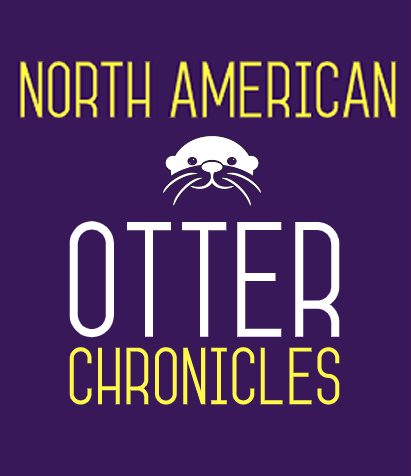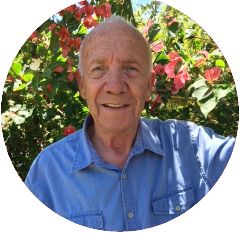
Victor L. Camp
Director & Editor
I am with The Water School at Florida Gulf Coast University as Courtesy Faculty/River Otter Research in the Department of Ecology & Environmental Studies. As a river otter researcher I am investigating the presence, habitat utilization, and behavioral activities of the North American river otter (Lontra canadensis) in gated communities (individual housing developments enclosed with a semi-impervious perimeter fence or wall and frequently with one or more, sometimes guarded, entry points) and non-gated residential communities and golf courses in western Lee and Collier counties of southwest Florida. Gated communities, in particular, appear to provide an additional or supplemental habitat for otters in southwest Florida (personal observation). Gated communities, within the study area, may contain natal dens and geographical characteristics conducive to otter pup rearing (personal observations). This research is intended to define the extent these man-made environments contribute to the population of river otters in southwest Florida. This investigation will also define the geographic and biological characteristics which will contribute to the formulation of design characteristics that will allow river otters and people to live in harmony in these residential communities. My particular life sciences interests are in mammal and plant ecology and animal behavior.

Tom Serfass
NA River Otter Scientific Advisor
Senior Scientific Advisor
Tom Serfass is a professor of Wildlife Ecology in the Department of Biology and Natural Resources at Frostburg State University, and is the North American Coordinator of the International Union for the Conservation of Nature and Natural Resources’ Otter Specialist Group. He has worked with river otter conservation for over 25 years, having conceived and supervised the Pennsylvania River Otter Reintroduction Project. Tom also coordinated research for the New York Otter Project and served as a consultant for the reintroduction of river otters in New Mexico. Most recently Tom has been conducting research with spotted-necked otters at Rubondo Island National Park, Tanzania, and NA river otters in the Greater Yellowstone Ecosystem and the Potomac River in West Virginia and Maryland, USA.
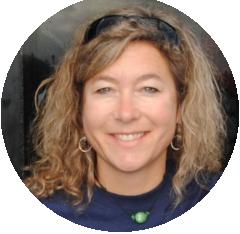
Shawn Larson
Sea Otter Scientific Advisor
Dr. Shawn Larson is the Senior Conservation Research Manager for the Seattle Aquarium responsible for managing the aquariums conservation research programs. She received her PhD form the University of Washington in 2003 and has been either the author or coauthor of 65 or more scientific publications related to marine ecology and marine mammals including Killer whales, Gray whales and Sea otters. She has also conducted research on Pacific sharks and tropical and temperate reef fish. Some of her more recent mammal research publications include-2021: Translocations maintain genetic diversity and increase connectivity in sea otters(Enhydra lutris); 2021: Investigating Associations Among Relatedness, Genetic Diversity, and Causes of Mortality In Southern Sea Otters (Enhydra lutris nereis); 2021: Epimeletic behaviour in a Southern Resident Killer Whale (Orcinus orca); 2021: Investigating Associations Among Relatedness, Genetic Diversity, and Causes of Mortality In Southern Sea Otters (Enhydra lutris nereis); 2021: Stressed and slim or relaxed and chubby? A simultaneous assessment of gray whale body condition and hormone variability; 2020: Assessment of fecal steroid and thyroid hormone metabolites in eastern North Pacific gray whales. 2020: Spatial epidemiological patterns suggest mechanisms of land-sea transmission for Sarcocystis neurona in a coastal marine mammal; 2019: Sea Otter (Enhydra lutris) Diet Diversity in Zoos and Aquariums; 2019: Influence of occupation history and habitat on Washington sea otter diet; 2019: Future Directions in Sea Otter Research and Management; 2018: Defining the risk landscape in the context of pathogen pollution: Toxoplasma gondii in sea otters along the Pacific Rim; 2018: Measures of effective population size in sea otters reveal special considerations for wide‐ranging species; 2018: Are otters toxic? A trial in using enzyme-linked immunosorbent assays (ELISAs) to measure contaminants in sea and river otter diet and feces; 2018: Sightings of southern resident killer whales in the Salish Sea 1976–2014: the importance of a long-term opportunistic dataset.
She has been organizing and hosting biennial sea otter conservation workshops at the Seattle Aquarium since 1999 and in the Spring of 2021 hosted the Sea Otter Research and Conservation Symposium.
She is also the deputy sea otter species coordinator for the IUCN otter specialist group.

Jimena Guerrero
Neotropical Otter Scientific Advisor
I started my work on Neotropical otters during my honours project (BSc. In Biology), investigating their diet, distribution and identifying key habitat features correlated with otter presence in Central Mexico. Later, during my PhD, I used molecular tools to propose conservation actions for Neotropical otters throughout their distribution range. Since then, I have continued collaborating with colleagues throughout Latin America in projects on current distribution, threats and genetic structure of this charismatic species.

David Hamilton
Zoo & Aquarium Scientific Advisor
Senior Scientific Advisor
David is the General Curator of the Seneca Park Zoo in Rochester, NY.He has worked theresince 2004.Prior to that he worked at the Knoxville Zoo.While there he earned his Master’s in Ethology at the University of Tennessee in Knoxville.David is the Program Leader for the North American River Otter Species Survival Plan (SSP) and the Studbook Keeper for the species.He also serves as the Small Carnivore Taxon Advisory Group (TAG) Chair.He has been an Instructor and Organizer for the Otter Keeper Workshop since 2004.As Adjunct Instructor at the Rochester Institute of Technology (RIT),David has served on thesis committees for several graduate students conducting research on North American river otters.Through RIT he is involved in a genetic assessment study of North American river otters.
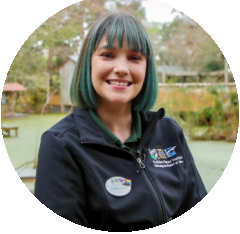
Dominique Fleitas
North American River Otter & Neotropical Otter Rehabilitation Scientific Advisor
Dominique Fleitas, a native of Southern Louisiana, is the Assistant Curator of the Louisiana Swamp Exhibit and Jaguar Jungle at Audubon Zoo where she has spent over 16 years working with North American river otters. She grew up with a passion for the diverse and vibrant ecosystem that surrounds her and this love for nature led her to begin her professional journey in 2006 when she joined the Louisiana Swamp Exhibit at the Audubon Zoo in New Orleans. Due to seasonal flooding and human encroachment many orphaned otter pups from the southern regions of Louisiana have been brought to Audubon Zoo over the years and as a result, she has been hand-rearing pups since 2008.
During her time at Audubon, Dominique pursued a degree in Environmental Biology from Tulane University, which she accomplished in 2014. In 2019, Dominique was appointed as a North American river otter representative for the Otter Education Advisory Group, overseen by the Small Carnivore Taxon Advisory Group. This position further showcases her commitment to educating the public about otters and fostering awareness regarding their conservation needs. Recognizing her dedication, Dominique was appointed as the Vice Program Leader for the North American River Otter Species Survival Program (SSP) in 2021. Dominique’s journey as a wildlife advocate and protector of North American river otters stands as a testament to her unwavering devotion to preserving the delicate balance of nature’s intricate tapestry.

Pending
Sea Otter Rehabilitation Scientific Advisor
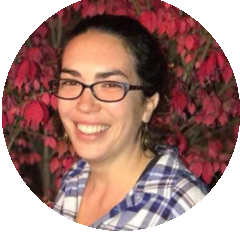
Shannon Romeling
Design & Layout Advisor
Shannon is a full-time employee of Amigos Bravos and is responsible for researching, writing, submitting, and tracking proposals and reports regarding grants from foundations, government agencies, and other contractual funders. She is also responsible for any project related work delegated to her by the ED or Projects Director. Shannon manages our volunteer River Camera program and recently completed a three- year planning and water-sampling effort to decrease bacteria in the Rio Fernando de Taos. She completed her Master’s in Biology at Missouri State University in May, 2012 and wrote her thesis on the effects of wind turbine caused mortality on the future of the federally endangered Indiana bat.

Lesley Wright
Webmaster
Originally an analytical chemist, I have worked in IT at a national high energy physics lab for 40 years. After a PhD exploring whether database analysis techniques could be applied to animal welfare assessment, I began a parallel career with otters, originally helping present ambassador animals to the public, but then providing IT support to the IUCN/SSC Otter Specialist Group, becoming species representative for the Asian Small-Clawed Otter for a while, and am now joint Deputy Chair. Since 2005, I have been webmaster and assistant editor for the IUCN/SSC Otter Specialist Group Bulletin, devising and carrying out the Bulletin digitization project that was completed a few years ago: all issues of the Bulletin, from 1986 onward, are now available and searchable online. More recently, I have worked with Victor to create the Historical Archive of the River Otter Journal, hosted by the Bulletin, as are these North American Otter Chronicles.
